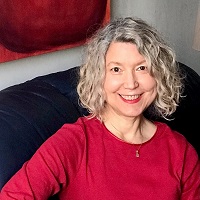Copyediting III
WCWP-40238
This is the final course of the Copyediting Certificate. Are you ready for your first major editing assignments? In this course, you will carry out heavy edits on all elements of two manuscripts. You will also work on a deadline and communicate directly with fictious authors of both manuscripts through queries and a cover letter.
This is the final course in the four-part-class series. Upon completion, you will equipped with the skills and knowledge to copyedit a variety of materials for structural issues, unclear language, factual errors, and plagiarism in addition to spelling, punctuation, and grammar. You will also learn how to collaborate with the author regarding significant edits while advocating for the reader.
Although this class builds on the material taught in the prerequisite classes, it is a significant step up from Copyediting II. You will use everything you've learning throughout the program to copyedit both manuscripts to industry standards.
What You Will Learn:
- Perform a heavy copyedit of two manuscripts: a fictious chapter of a nonfiction book and a fictitious digital article
- Edit for mechanical editing as well as language and content editing, depending on the client’s audiences, goals for publication, and manuscript content
- Communicate effectively with a variety of clients through queries within the manuscripts and via a cover letter
- Examine complex topical issues related to editing in English
- Review topics introduced in earlier copyediting courses
- Explore documentation, permissions, front and back matter, tables, and illustrations
- Learn about editing different genres
- Use print and online references to resolve editorial problems
- Recognize and identify common legal considerations in the fields of editing and publishing
About the Manuscripts:
- The main manuscript is a 14-page nonfiction fictitious chapter that focuses on current topics in copyediting and language. These include the history, geographical, and professional contexts of the singular they; nonbinary pronouns; and evolving language. It is broken up into three parts. There is one edit for each section and a final edit of the entire manuscript toward the end of the course. The second manuscript is a digital article about the history, usage, and importance of Black English in the United States. It is four pages long and requires one edit of the many issues that arise in the context of digital publications, including checking embedded hyperlinks for accuracy and plagiarism.
- Each assignment takes at least 3-5 hours to complete.
Quarters Offered: Winter, Spring, Summer, Fall | 10 weeks | Online
Prerequisite: Copyediting II (WCWP-40237).You may enroll in a future section of Copyediting III while currently taking Copyediting II. Passing grades of prerequisites will be verified before the quarter begins.
Requirements: Microsoft Word 2016/Office 365 (PC or Mac) or higher required. Access to a printer and scanner or scanning app required.
Note: Allow yourself a minimum of 9 hours per week to work on assignments.
Course Information
Course sessions
Section ID:
Class type:
This course is entirely web-based and to be completed asynchronously between the published course start and end dates. Synchronous attendance is NOT required.
You will have access to your online course on the published start date OR 1 business day after your enrollment is confirmed if you enroll on or after the published start date.
Textbooks:
Garner's Modern English Usage (Digital book accepted but syllabus only provides page numbers for printed book.) 5th
by Bryan Garner
ISBN / ASIN: 9780197599020
The Copyeditor's Handbook 4th
by Amy Einsohn and Marilyn Schwartz
ISBN / ASIN: 9780520286726
The Chicago Manual of Style (ONLINE SUBSCRIPTION ONLY, DO NOT USE PRINTED BOOK) Edition: 18th
ISBN / ASIN: XXXXXXXXXXXXXX
You may purchase textbooks via the UC San Diego Bookstore.
Policies:
- No refunds after: 4/10/2026
- 1st no meeting date: 5/25/2026
- Prerequisite required
Note:
Schedule:
Instructor:
 Lynn Braz
Lynn Braz

Lynn Braz holds an MA in creative writing from Wilkes University and a B.A. in journalism from Temple University. She is a writer, editor, and business woman providing editorial services to corporate clients, authors, and academics. Lynn has previously taught writing and editing courses at a small private college in Pennsylvania.
Section ID:
Class type:
This course is entirely web-based and to be completed asynchronously between the published course start and end dates. Synchronous attendance is NOT required.
You will have access to your online course on the published start date OR 1 business day after your enrollment is confirmed if you enroll on or after the published start date.
Textbooks:
Garner's Modern English Usage (Digital book accepted but syllabus only provides page numbers for printed book.) 5th
by Bryan Garner
ISBN / ASIN: 9780197599020
The Copyeditor's Handbook 4th
by Amy Einsohn and Marilyn Schwartz
ISBN / ASIN: 9780520286726
The Chicago Manual of Style (ONLINE SUBSCRIPTION ONLY, DO NOT USE PRINTED BOOK) Edition: 18th
ISBN / ASIN: XXXXXXXXXXXXXX
You may purchase textbooks via the UC San Diego Bookstore.
Policies:
- No refunds after: 4/10/2026
- 1st no meeting date: 5/25/2026
- Prerequisite required
Note:
Schedule:
Instructor:
 Cara Jordan
Cara Jordan

Prior to co-founding Flatpage, Cara was a freelance copyeditor and developmental editor, primarily for academics and in the arts; her clients included numerous universities, private individuals, museums and nonprofit organizations, and businesses. She has also worked as the managing editor of an academic journal, in-house for an artist-publisher, and as a contractor at Meta (formerly Facebook, Inc.). Through this experience, she gained an intimate understanding of the practice and the business of editing.
Cara co-edited the book The Art of Academic Editing: A Guide for Authors and Editors (Flatpage, 2024), a guide to the different types of academic editorial services and when they happen in the life cycle of a scholarly text.
She earned her certificate in copyediting from UCSD Extension in 2018 and teaches Copyediting III.

